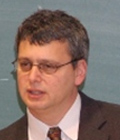Speakers and conference papers

Professor Lee is a scholar and lawyer in international economic law and law and development. He is Director and Professorial Fellow of the Law and Development Institute. He has also taught and conducted academic research at leading universities throughout the United States, Europe, and Asia. He graduated in economics with academic distinction from the University of California at Berkeley and received law degrees from the University of Cambridge (B.A., M.A., Ph.D). Author of Reclaiming Development in the World Trading System (Cambridge University Press, 2d ed., 2016, reprint 2018), Safeguard Measures in World Trade: The Legal Analysis (Edward Elgar, 3rd ed. 2014), and Law and Development Perspective on International Trade Law (co-authored, Cambridge University Press, 2011), Professor Lee has published over eighty scholarly articles, books, chapters and shorter notes with leading publishers in North America, Europe, and Asia, in the areas of international economic law, law and development, comparative law, and international commercial arbitration.
Presentation Title: General Theory of Law and Development
Although scholarship in law and development which explores the relationship between law and social and economic progress has evolved over the last four decades, this area of inquiry remains unfamiliar to many legal scholars, lawyers, and policy makers. Scholars have not yet been able to develop a theory that systematically explains the interrelationship between law and development, which would establish law and development as a robust and coherent academic field. This article attempts to fill this gap by presenting a general theory that defines the disciplinary parameters of law and development, and explains the mechanisms by which law impacts development. This article also demonstrates the validity of this general theory by applying it to an empirical case and also by explaining the development process of South Korea (1962–1996) under its analytical framework. The concept of development, which has traditionally been associated with developing countries, may also be extended to address economic problems in developed countries today.

Philipp Dann, Dr. iur. (Frankfurt), LL.M. (Harvard), is Professor at Humboldt University Berlin, where he holds the Chair of Public and Comparative Law. He was a research fellow at New York University, Georgetown University and the Max Planck Institute for Public International and Comparative Public Law in Heidelberg and taught in India, Kenya, the US and France. His research interests centre around issues of law and development, comparative constitutional law, public international and European Union law. His most recent works include ‘The Law of Development Cooperation’ (CUP 2013), ‘Entwicklung und Recht / Development and Law: A systematic introduction’ (together with Stefan Kadelbach and Markus Kaltenborn, Nomos 2014), ‘The Battle for International Law in the Decolonization Era’ (with Jochen von Bernstorff, OUP 2018, forthcoming) and ‘Democratic Constitutionalism in Continental Polities: India and EU compared’ (forthcoming 2019). He is the editor-in-chief of the quarterly journal “Verfassung und Recht in Übersee (VRUe) / Law and politics in Africa, Asia and Latin America” that focuses on issues of public law in the Global South as well as development law.
Presentation Title: World Bank Rulemaking and the Evolution of Global Order
The presentation analyses the recent reform of World Bank’s environmental and social Safeguards against the backdrop of changing paradigms of global legal order. It will argue that this reform epitomizes the changing structures and geopolitical shifts that shape international law in the 21st century, providing a fascinating looking glass on the evolution of global order since the end of the Cold War. The first generation of Safeguards, introduced since the late 1980s, was an element of incremental legalization in the emerging global governance regime, a regime characterized by unipolar multilateralism and geopolitical dominance of ‘the West’. The 2016 reform not only reflects the increased politicization of global governance by civil society, but also the emergence of a more competitive multilateralism, characterized by counter-institutionalization on the part of emerging powers like China. A comparison of the old and new Safeguards thus allows us to analyze different forms of contestation and resulting normative evolution in the key area of global governance of development and finance.

Mr. Jan Schmidt is the Editorial Director of Walter de Gruyter, a prominent academic publishing house in Germany. He is also a qualified lawyer and studied law at the University of Bonn, Germany. Before joining De Gruyter in 2010, he worked for C.H. Beck as an editor and for Wolters Kluwer as the editorial director in labor and social law. From 2003 to 2006, he was a research and teaching assistant in Labor Law for Professor Dr. Ulrich Preis at the University of Cologne. He has published papers on law against unfair dismissal and in the area of social law such as “§ 4 S. 4 KSchG und Gesetz zu Reformen am Arbeitsmarkt”, Neue Zeitschrift für Arbeitsrecht 2004 (No. 2); “KSchG 2004: Neuer Schwellenwert und einheitliche Klagefrist“, with Wolfgang Bender, Neue Zeitschrift für Arbeitsrecht 2004 (No. 7); and “Das Sterbegeld nach §§ 58, 59 SGB V – requiescat in pace”, with Tim Urmersbach, Die Krankenversicherung 2004 (No. 12).

Wouter Vandenhole holds the chair in human rights and the UNICEF chair in children’s rights at the faculty of law of the University of Antwerp since 2007. He heads the Law and Development Research Group since 2013. Wouter Vandenhole is an internationally recognized expert in transnational human rights obligations and in human rights and development. He serves on the editorial board of several international journals, among which the Journal of Human Rights Practice and Human Rights and International Legal Discourse. He has taken up management functions in European research and teaching networks. He was the lead convener of an international summer course on Human Rights for Development (HR4DEV, 2012-2015) and of the international training program Sustainable Development and Human Rights (SUSTLAW, 2016, 2017 and 2018). He has undertaken projects and consultancies with or on behalf of international and national organizations.
Presentation Title: Towards a Fourth Moment in Law and Development?
Throughout its history, law and development has been so confined to or dominated by the economic, that a clear break with the past may be needed. The ‘three moments’ analysis that Trubek and Santos presented in 2006 shows that, whereas law and development theory moved from law as an instrument for state power (first moment) to law as an instrument of the market (second moment), and in a third moment was conceived of as regulating the market, it never lost its primary focus on economic development and on economic law. And more fundamentally, it may never have moved beyond a market-friendly approach. Just like institutional dimensions (including law, legal institutions) were for a long time marginal in development theories, justice concerns have not taken center stage in law and development studies, although the rule of law has had some traction.
This begs the question whether those studying the role of law in bringing about justice and social change should claim the law and development field as their field of study too, or rather create a countervailing field. This paper examines pros and cons for claiming a fourth moment in law and development studies by those who study whether and how law (including human rights law) disciplines and tames the state, the market and other powerful actors.

Celine Tan is Associate Professor of Law and Director of the Centre for Law, Regulation and Governance of the Global Economy (GLOBE) at the School of Law, University of Warwick, UK. Prior to her current post, she held a lectureship in law at the University of Birmingham and a Postgraduate Research Fellowship at Warwick Law School where she completed her PhD. Celine has also worked with international and non-governmental organisations in Europe, Africa and Asia on issues relating to social and economic development and human rights. Her research centres on exploring aspects of international economic law and regulation with a focus on international development financing law, policy and governance.
Presentation Title: Beyond the ‘Moments’ of Law and Development: Critical Reflections on Law and Development Scholarship in a Globalized Economy
This paper aims to review and assess the contributions and limitations of law and development as a field of legal scholarship in relation to the constitution of the international economy and global economic governance. It seeks to reflect on the theoretical and methodological contributions of law and development theory and practice on the development of international legal scholarship, particularly in the rapidly evolving field of international economic law. The intersections of economic theory, jurisprudence and legal theory and the institutional practice of development agencies and international economic organisations which are the focus of law and development scholarship provide a useful interdisciplinary prism through which developments in the regulatory framework of the global economy can be studied. Mapping the ways in which what Trubek and Santos (2006) calls the three spheres of law and development – economic theory, legal theory and institutional practices (of bilateral and international organisations) – overlap enables us to chart, understand and, where necessary, contest, the shifts in development theory and policy and institutional practice that influence and shape legal reform and scholarship.

Michael Ilg is an Associate Professor with the Faculty of Law, University of Calgary. He currently teaches Contracts, Remedies, Law & Economics, and Law & Development. His research and scholarship tends to focus on the application of economic concepts to issues in legal theory and constitutional law. He completed his Ph.D. in law at the University of British Columbia. Previously, he received his J.D. and LL.M. from Queen’s University, Kingston.
Presentation Title: Freedom from Development
This presentation suggests that in some circumstances it is necessary to reject the individualistic and market based premises that underlie Amartya Sen’s famous conception of Development as Freedom, and that of mainstream development analysis in general. Instead of development as freedom, it is suggested that at times people require freedom from development. While there are many instances in which development is a desirable social end, as when people derive greater capacity from economic growth, there are also situations when the desire for development must be displaced in favor of other social priorities. A prominent example of freedom from development is presented by Indigenous advocacy for the protection of traditional lands and resources. Indigenous advocacy often joins three important aspects of environmental preservation, cultural integrity, and self-determination. It is proposed that these three pillars are indicative of a wider desire for the relaxation of the pull of global markets and the economic logic of centralization.

Deval Desai is post-doctoral research fellow at the Albert Hirschman Centre on Democracy, Graduate Institute, Geneva. Trained in history and French literature (M.A., Oxon), and law and social theory (LL.M. and S.J.D., Harvard Law School), he is a member of the Bar of England and Wales. He researches and publishes on the law and politics of expertise, and the rule of law in developing countries. His current research critically examines creativity as a mode of regulation and policymaking, focusing on multi-stakeholder initiatives and on rule of law reform. His research has been funded by Harvard, LSE, and Canada’s IDRC, amongst others. He has also held fellowships at Harvard, SOAS, Manchester, the British Institute of International and Comparative Law, and the Overseas Development Institute.
Since 2009, Deval has also worked for the World Bank as a rule of law reform and governance expert in Nigeria, Cameroon, Sierra Leone and Uganda; as well as advising the UN on rule of law issues. As a lawyer, he has worked on corporate accountability, including as an attorney on the case of Kiobel before the US Supreme Court.
Presentation Title: Reflexive Law and Development: From Theory to Scholarship
David Trubek argues that law and development is marked by the “proliferation and fragmentation” of ideas and practices, as the field moves away “from one-size-fits-all recipes based largely on stylized accounts of US and UK experiences” and as “the concept of development [has] expanded to embrace social and political dimensions and even the rule of law itself.” I suggest that what law and development scholarship shares is the condition of fragmentation and proliferation, motivated by a renewed concern with the contextuality and politics of law in a development context.
This, I argue, might be understood as a manifestation of a contemporary trend in law and development thought and practice (that I do not historicize here) to imagine institutions as reflexive: i.e. produced by agents who debate political issues, and consciously shape the institutions that govern them. If this is the case, I go on to argue that we might expect to see a deepening of scholarship around three technologies of law and development, and their relationships: (1) big social data and transparency (or reflexive knowledge), and institutional experiments premised on such data gathering; (2) adaptation (or reflexive prescription), and experimental legal and institutional reforms premised on creativity and innovation; and (3) multistakeholderism (or reflexive enforcement), and institutional design efforts that straddle the public-private divide.

Professor Zwier teaches Advanced Negotiation and Mediation in the Shadow of International Law, with Hrair Balian and Tom Crick, of The Carter Center. He also teaches Torts and Evidence. Professor Zwier has taught advocacy skills to international lawyers and judges in Arusha, Tanzania, (ITCR); Den Hague, Netherlands (ICC); YaKaterinburg, Russia, Mexico City, Mexico; Quito, Ecuador; Monrovia, Liberia; Nairobi, Kenya; Tbilisi, Georgia; Northern Ireland; Scotland; England; Hong Kong, Shanghai and Beijing, China and led seminars in negotiation and dispute resolution for black South African lawyers as part of a State Department program. He is the author of numerous books and articles, including Peacemaking, Religious Belief and the Rule of Law: The Struggle between Dictatorship and Democracy in Syria and Beyond, (Routledge, Taylor and Francis Group, London and New York, 2018); Principled Negotiation on an International Stage: Talking with Evil, Cambridge University Press (2013); Wild Life Poaching and Rule of Law in Africa, 11 Law and Development Review (forthcoming 2018) (with Glajar); Human Rights for Women in Liberia (and West Africa): Integrating Formal and Informal Rule of Law Reforms through the Carter Center’s Community Justice Advisor Project, Law and Development Review, (2017), ISSN (Online) 1943-3867, ISSN (Print) 2194-6523, DOI: https://doi.org/10.1515/ldr-2017-0008.; History, Creative Imagination, and Forgiveness in Mediation on an International Stage: Practical Lessons from Paul Ricoeur’s Hermeneutics, Journal of Law and Religion, available on CJO2015. doi:10.1017/jlr.2015.4:Moving From an Inquisitorial to an Oral Adversarial System in Mexico: Jurisprudential, Criminal Procedure, Evidence Law and Trial Advocacy Implications, 26 Emory International Law Review 189 (2012) (with Alexander Barney); Advanced Negotiation and Mediation Theory and Practice (2d.) (with Guernsey) (NITA, 2015); Looking to ‘Ground Motive’ for a Religious Foundation for Law, 54 Emory Law Journal 357 (2005. He has made professional presentations and consulted with dozens of law firms and other organizations.

Sara Ghebremusse is a PhD candidate at Osgoode Hall Law School and a Visiting Assistant Professor at the Peter A. Allard School of Law at the University of British Columbia. Her doctoral research conducts a comparative analysis of mineral resource governance in Botswana, South Africa and Zambia to assess whether recent law reforms respond to “good governance” concerns. Sara holds a Master of Laws from the University of Toronto, a Juris Doctor from the University of Ottawa, a Bachelor of Arts in Political Science and Middle Eastern and African Studies from the University of Alberta, and a Master of Arts in International Affairs from the Norman Paterson School of International Affairs at Carleton University. She is the recipient of numerous academic awards, including the SSHRC Joseph-Armand Bombardier Canada Graduate Scholarship and the CIGI International Law Research Program Doctoral Scholarship.
Presentation Title: Application of the General Theory to Botswana
Botswana has achieved significant socioeconomic development despite its low-income status in 1966 when colonial rule ended, earning it the status of an “African success story” and “African miracle”. Botswana’s development was achieved in great part to its abundance of natural resources (diamonds), in contrast to other African countries that displayed conditions affiliated with the “resource curse”: corruption, rent-seeking behaviour by the ruling class, Dutch disease, declining terms of trade, the absence of economic diversification, and even civil conflict. Despite its extensive coverage in political economy and development studies literature, Botswana’s socioeconomic development has yet to be interrogated through a law and development lens. Yong-Shik Lee offers a theoretical framework to conduct such an analysis in his article, General Theory of Law and Development, which proposes that law directly impacts development through three categorical Regulatory Impact Mechanisms: regulatory design; regulatory compliance; and quality of implementation. My paper attempts to apply Lee’s theory to Botswana, making it one of the first applications of Lee’s theory to an African case study.

Kevin E. Davis is Beller Family Professor of Business Law at New York University School of Law. His current research focuses on quantitative measures of the performance of legal institutions, transnational anti-corruption law and commercial law. Before joining NYU he was a member of the faculty at the University of Toronto, Faculty of Law. He is currently completing a monograph on transnational anti-corruption law. Recent publications include: Data and Decentralization: Measuring the Performance of Legal Institutions in Multilevel Systems of Governance, Minnesota Law Review (2018); Transnational Anti-Corruption Law in Action: Cases from Argentina and Brazil, Law & Social Inquiry (2015) (with Guillermo Jorge and Maíra Machado); Legal Indicators: The Power of Quantitative Measures of Law, 10 Annual Review of Law and Social Science (2014); and, Indicators as a Technology of Global Governance, 46(1) Law & Society Review 71–104 (2012) (with Benedict Kingsbury and Sally Merry).
Presentation Title: The Limits of Evidence-Based Regulation: The Case of Anti-Bribery Law
Evidence-based regulation is a term of art which refers to the process of making decisions about regulation based on evidence generated through systematic research. There is pressure from several sources to adopt evidence-based regulation as a regulatory best practice, including from US political interests hoping to tame the regulatory state, the OECD, international trade agreements, and academics. However, there are certain conditions under which evidence-based regulation is likely to be a less appealing method of decision-making than the alternative, namely, relying on judgment. Those conditions are: it is difficult to collect data, on either interventions or outcomes; accurate causal inferences are difficult to draw; there is little warrant for believing that the same causal relationships will apply in a new context; or, the decision-makers in question lack the capacity to undertake one of these tasks. These conditions are likely to be present in complex, decentralized and dynamic forms of business regulation. The global anti-bribery regime is an illustrative case.

Hans-Bernd Schäfer is affiliate professor for Law and Economics at Bucerius Law School in Hamburg (Germany). He is also professor emeritus of economics at the University of Hamburg, where he was director of the Institute of Law and Economics. He published widely in the field of Law and Economics. His book on the economics of civil law, co-authored with Claus Ott is in its fifth edition and was translated into several languages. He is co-author with Robert Cooter of a book on law and development (Princeton University Press 2012). Schäfer was president of the European Association of Law and Economics, director of the Erasmus Program in Law and Economics (EMLE) and director of the Ph.D. program in law and Economics, funded by the German Research Association. He was awarded the scholar prize of the European as well as the Latin American and Caribbean Association of Law and Economics and is honorary professor of the University San Martin de Porres in Lima. He is an honorary member of the Polish and the German Association of Law and Economics. He lectured on Law and Economics as well as on law and economic development many European, American and Asian universities.
Presentation Title: Taking Laws in Developing Countries: The Case for Clear and Precise Legal Norms on Eminent Domain Power
The literature on precise legal rules versus imprecise legal standards shows a tradeoff between the benefits and adverse effects of the two types of legal norms. Rules are less costly to administer and need less trained civil servants but can become inflexible, sticky and dysfunctional over time if technical of social condition change. Standards economize on the costs of norm specification. Related to developing countries the literature shows that striking the optimal balance between rules and standards might lead to a more rule-based law in low income countries as compared with high income countries. The general findings of this discussion will be provided and then related to the law of eminent domain power and takings for public and private use. Fixed formulas for damage compensation might protect the affected better than a “fair compensation” as is the law in many countries. If the legal requirements for a taking decision are more clearly defined in the law the affected get more incentives to fight against the legality or constitutionality of the taking decision in court.

Professor Mario Schapiro is currently Professor of Law at the São Paulo Law School of Fundação Getulio Vargas (DIREITO SP) and Associate Dean for Academic Master Program and. He received a doctorate degree and master of laws´ degree in economic law from Law School of Universidade de São Paulo and a bachelor’s degree in law from Law School of Universidade de São Paulo. Mario was an undergraduate researcher of FAPESP, a fellow researcher in the Sasakawa Young Leaders Fellowship Fund and a visiting scholar at Columbia Law School. His research agenda focuses on the areas of law and development, administrative law and political economy of development, with emphasis on institutional alternatives and public policy designs in the economic field. In the undergraduate program, he has taught administrative law and competition law courses. In the master’s program, Mario lectures in the law and development course.
Presentation Title: New Institutions, Old Organizations: Legal Reforms in the Brazilian Housing Finance
In the last decades, several countries have undertaken institutional reforms in their national housing finance systems. These changes aimed at ensuring higher legal security for investors, with the intention of substituting state-owned resources to private financing, based on the capital market. The reforms, processed by the enactment of laws and regulatory frameworks, settled forth new contractual rules and eviction procedures, thus favoring the formation of a mortgage market in several national economies. Data collected by Buckley; Chiquier; Lea, demonstrates an exponential growth of this market in several countries, such as China, India, Hungary and the Baltic states. This paper contributes to the literature on institutional reforms and privatizations, particularly for housing finance legal reforms. This paper sustains that the liberal economic reforms, designed to provide legal security to private agents, may be necessary but not sufficient to foster a market order. Thus, the case study corroborates some of the arguments introduced by the literature on privatization, according to which those reforms do not lead to a clear-cut transition from the state to the market. Moreover, the paper adds another possible track to these reforms. In this case, not only the transition reveals a more nuanced accommodation between state and market, but also it indicates that the state-owned enterprises might play an active role in the privatization process. It can occur either by the adaptation of its strategies to the new institutional framework or by grabbing benefits from the new market order. In other words, besides confirming that privatization is more a continuous process than a single event, the paper recognizes the state as a leading player in this transformation.

Diogo R. Coutinho is an Associate Professor of Law at the University of Sao Paulo (USP). He holds a master from the London School of Economics and Political Science (2002) and a doctorate from the University of Sao Paulo Faculty of Law (2003). He was a visiting professor at the Center for Transnational Legal Studies – CTLS (London, 2009), a faculty member at IGLP (Institute of Global Law and Policy, Harvard Law School) and has written on law and development, administrative and economic law, and regulatory policies in Brazil. Among other books, he published the edited volume ‘Law and the New Developmental State: The Brazilian Experience in Latin American Context’ (Cambridge University Press, 2013)
Presentation Title: Contracting for Development: Law and Innovation Policies in Brazil
The key role played by innovation in development policies is constantly emphasized by the literature: innovation in products and processes increases productivity and competitiveness not only in high-tech sectors in industrial societies but also in catching up strategies in developing countries. It is also well known that innovation means taking significant risks in long term maturation projects, which requires proactive and consistent state action. The state not only creates conditions for companies to engage in innovative processes, but also leads the process and creates incentives for private investment. In other words, while the state is not directly responsible for innovation, it cannot happen without the political and institutional conditions created by innovation policies. Therefore, the innovation potential does not appear spontaneously: it depends on several factors interrelated in a complex and intentional manner. Among them, the existence of institutions created to foster innovative activities through public policies consistently conceived, structured and perfected. Such policies, in turn, are to a great extent the outcome of past and present legal arrangements and structures. This article discusses legal and institutional aspects involving both public-private contracts and relations established between Brazilian public entities (e.g. public R&D institutes and public universities) and/or between Brazilian and non Brazilian private-sector organizations (e.g. startup and investors and finance providers) in the field of innovation. It is based on the premise that designing, structuring and articulating institutional arrangements and legal/contractual instruments among actors such as the state, companies, entrepreneurs and universities are key to trigger and foster innovation. The underlying hypothesis is that there are, however, persistent and severe obstacles – from the viewpoints of system building and legal effectiveness – to overcome in Brazil when it comes the goals of innovation promotion. The current legal and institutional national framework is the result of an accumulation of legislation issued in various historical contexts to satisfy various purposes and sectors, thus creating overlaps and regulatory ambiguities surrounding innovation activities.

Elizabeth Bakibinga-Gaswaga, currently a Legal Adviser – Rule of Law, at the Commonwealth Secretariat Headquarters, London, United Kingdom, is an Advocate/Attorney at Law with 17 years’ standing. With 20 years’ experience in legal, legislative and policy analysis work, she has served as Vice President of the Commonwealth Association of Legislative Counsel; Legal Officer in the United Nations’ Department of Peacekeeping Operations; Principal Legislative Counsel at the Parliament of Uganda; and Lecturer in the post-graduate programme at the Faculty of Computing and Information Technology at Makerere University, Uganda, among others. Ms. Bakibinga-Gaswaga has experience in providing legislative drafting and legal advisory services, rule of law programme management, managing peacekeeping operations, global governance, building partnerships, mobilising resources, the development of legal, policy and institutional frameworks as well as capacity building. She is a member of the Institute of International Humanitarian Law and has initiated and participated in capacity building programmes worldwide as trainer, presenter, rapporteur and resource person. Ms. Bakibinga-Gaswaga attended Makerere University, Boston University and the University of Oslo, among others. She is an advocate for girl child education and well-being in developing countries.
Presentation Title: Something Old, Something New – Which Way to Go for Rule of Law Projects in the Agenda 2030 Era?
Africa and the developing world have been the theatre of countless rule of law assistance projects since the end of World War II, with mixed results. While the reasons for the mixed results vary from project to project and from country to country, this paper seeks to address the limitations that arise right from project inception, reviews the cycle of project management from problem construction to monitoring and evaluation, taking into account the core and secondary aspects of project management such as scope, budget, quality, schedule, as well as stakeholder engagement, communication, risk management and performance management. The paper addresses the following aspects: identified challenges of past approaches of major development partners and interrogate the current shift in paradigm by the World Bank, United Nations and the Department for International Development, inter alia. It will consider lessons from complexity and other methodologies, theories of change, theoretical frameworks, and the Problem Driven Iterative Adaptation (PDIA) model as tools for doing development differently; and concludes with recommendations on improving the effectiveness of rule of law programmes, including a better approach to project design that makes allowance for results based programming, ease of adaptation, reflective learning through after action reviews and lessons learned, back and forth iteration, and better stakeholder engagement, including at the lowest level of governance (local contextualisation), to increase effectiveness of rule of law, change in mind-sets especially donor ideology and lessons to learn from military science’s doctrines and practices in the management of complex operations.

Florian Hoffmann is a Professor of Law at the Pontifícia Universidade Católica do Rio de Janeiro (PUC-Rio), Brazil, and an associate researcher in the Núcleo de Direitos Humanos (Human Rights Center) of the Law Department. Prior to this he was the Franz Haniel Chair of Public Policy (2010-2016) and the Director of the Willy Brandt School of Public Policy (2012-2015) at the University of Erfurt (Germany). Before this he taught at the London School of Economics and Political Science (LSE) (2008-2010) and the PUC-Rio (2003-2008). His work has generally focused on the interface between law and politics, with his main research interest having been in international law and human rights and the interface between law and development. He is, with Anne Orford, the co-editor of the Oxford Handbook on the Theory of International Law (2016).of the Copyright Alliance.
Presentation Title: Between (Re-)Empowerment and (Hyper-)Conditionality: the Rise of Accountability-Oriented Governance in Development Cooperation
Following the broader trend in public policy towards an ‘audit culture’, accountability has become a new mantra in development cooperation governance. Starting with the ‘rights-based approach to development’ and its inherent focus on the (individual) recipients of ‘overseas development assistance’ (ODA), and up to the current shift towards ‘results-based financing’ as a core ODA transfer modality, accountability has played an increasingly prominent role in contemporary development discourse. In many quarters, this has been seen as progress, as it potentially re-balances development policy (making) towards stakeholders ‘on the ground’ and re-distributes development agency ‘downwards’ by creating transparent feedback links between recipients and donors; this, in turn, is meant to make development cooperation both more efficient and more legitimate. Others, have, however, argued that this turn to accountability-oriented governance represents but a new guise for old conditionalities, one which accentuates, rather than diminishes (pre-)existing asymmetries by placing primary responsibility on developmental states whose fiscal and legal autonomy has been starkly reduced in the global economy. In this account, the turn to accountability feeds into a self-referential process that is primarily geared to generating an input legitimacy largely abstracted from real outcomes and oriented towards the self-reproduction of the normative-institutional system at its base. It is in the tension between these competing narratives, between accountability as (re-)empowerment or as (hyper-)conditionality that the current debate unfolds, a debate this proposed paper wishes to explore in greater detail.

Anri Heyns is currently a third-year PhD candidate with the NRF/DST SARChI Research Chair: Mineral Law in Africa at the University of Cape Town in South Africa. Her research focuses on broad-based black economic empowerment (“BBBEE”) of mine communities in terms of the Broad-Based Socio-Economic Empowerment Charter for the South African Mining Industry (“Mining Charter”). She specifically analyses mine community development as empowerment and argues that these initiatives operate in the global development paradigm, which has certain effects on the relationship between the mine companies and mine communities.
She has presented on the Mining Charter’s treatment of different communities in mining areas and the politics of mine community development at various conferences including the 2017 Law and Development Conference held in Cape Town in 2017. Anri has lectured on property law and constitutional property law at the University of South Africa, and on the politics of development and its effects for mining as part of the University of Cape Town Mineral Law in Africa masters course. Currently, she is lecturing jurisprudence at first year level at the University of Pretoria and acts as a part-time legal consultant. As an admitted attorney and notary, Anri practised in corporate and commercial law and gained exposure to the practical implementation of Broad-Based Black Economic Empowerment and other corporate structuring aspects.
Presentation Title: Mining Community Development in South Africa: A Critical Consideration of How the Law and Development Approach the Concept “Community”
The legislative system that promotes “mine community development” in South Africa provides for a complex interaction between various pieces of legislation and policy guidelines. At the centre of this interaction, are the definitions of “community” and “mine community”. These definitions have been amended quite a few times since the enactment of the legislative system, attesting to the difficulty for the law to capture “community”. The latest iterations of the definitions are criticised for their ambiguity, causing uncertainty as to who should benefit from mine community development.
This paper proposes that there is a conceptual problem when catering for communities, and not individuals, in a development paradigm posing challenges for accurately defining “community”. It is not argued that community development should not be promoted, but a possible reason for why mine community development is not successful is proposed. The South African mining legislative system will be considered in parallel with relevant international legal instruments.

Associate Professor Nandini Ramanujam is the Executive Director and Director of Programs of the Centre for Human Rights and Legal Pluralism at McGill University’s Faculty of Law. She also directs the International Human Rights Internship Program as well as Independent Human Rights Internships Program. She is the McGill representative for the Scholars at Risk Network and is a member of the Steering Committee of the Scholars at Risk Network, Canada section. Nandini Ramanujam’s research and teaching interests include Law and Development, Institutions and Governance, Economic Justice, Food Security and Food Safety, the role of civil society and the Fourth Estate (Media) in promotion of the rule of law, as well as the exploration of interconnections between field based human rights work and theoretical discourses. Nandini Ramanujam received her Doctorate in Economics from Oxford University for her dissertation on Price Mechanism in Russia: Its role in the Old Planning and the New Markets. She holds a M.Phil and a M.A. in Economics with 1st class honours from Bhopal University.
Presentation Title: Institutional Responsiveness as an Instrument of Distributive Justice in China and India (co-presentation with Dr. Nicholas Caivano)
The relationship between wealth creation and wealth distribution has been the subject of significant interest for numerous years—no more so than in the large economics of China and India. The two most populous countries in the world are often compared, but differ markedly. As growth in China begins to stabilize and the Indian economy demonstrates sustained growth, academics and policy makers are concerned with reconciling economic growth and equity. This paper will examine the relationship between institutional responsiveness and distributive justice in China and India. In particular, the paper will build on the Rule of Law and Economic Development Research Group’s (ROLED) ongoing research on the role of institutions in economic development in the BRIC countries to explore how institutions can serve as effective enforcement mechanisms in the pursuit of distributive justice.

IntroductionNicholas Caivano is an international human rights lawyer and Policy Analyst with the Canadian HIV/AIDS Legal Network and Researcher with the Rule of Law and Economic Development Research Group. His work focuses on advancing the health and human rights of marginalized, high-risk groups in Canada and internationally. Before joining the Legal Network, he worked at Amnesty International Canada as a Law Foundation of Ontario Public Interest Fellow, where he oversaw the organization’s strategic litigation efforts. Previously, he worked for the United Nations Office of the High Commissioner for Human Rights in Geneva, the Centre for Human Rights and Legal Pluralism in Montreal, and Human Rights Watch in New York City. Nicholas has conducted extensive research on, and written about, the human rights aspects of health, criminal justice, corporate accountability, counterterrorism, international development, and the work of the United Nations. Nicholas holds a B.C.L./LL.B. and B.Com from McGill University.
 Dr. Hye Seong Mun
Dr. Hye Seong Mun Professor Colin Picker
Professor Colin Picker Dr. Tomer Broude
Dr. Tomer Broude Professor Wang Jiangyu
Professor Wang Jiangyu Professor Won-Mog Choi
Professor Won-Mog Choi Dr. Andrew D Mitchell
Dr. Andrew D Mitchell Dr. Salim Farrar
Dr. Salim Farrar Professor Junji Nakagawa
Professor Junji Nakagawa Professor Maureen Irish
Professor Maureen Irish Professor David Gantz
Professor David Gantz Professor Moshe Hirsch
Professor Moshe Hirsch
 Professor Yong-Shik Lee
Professor Yong-Shik Lee